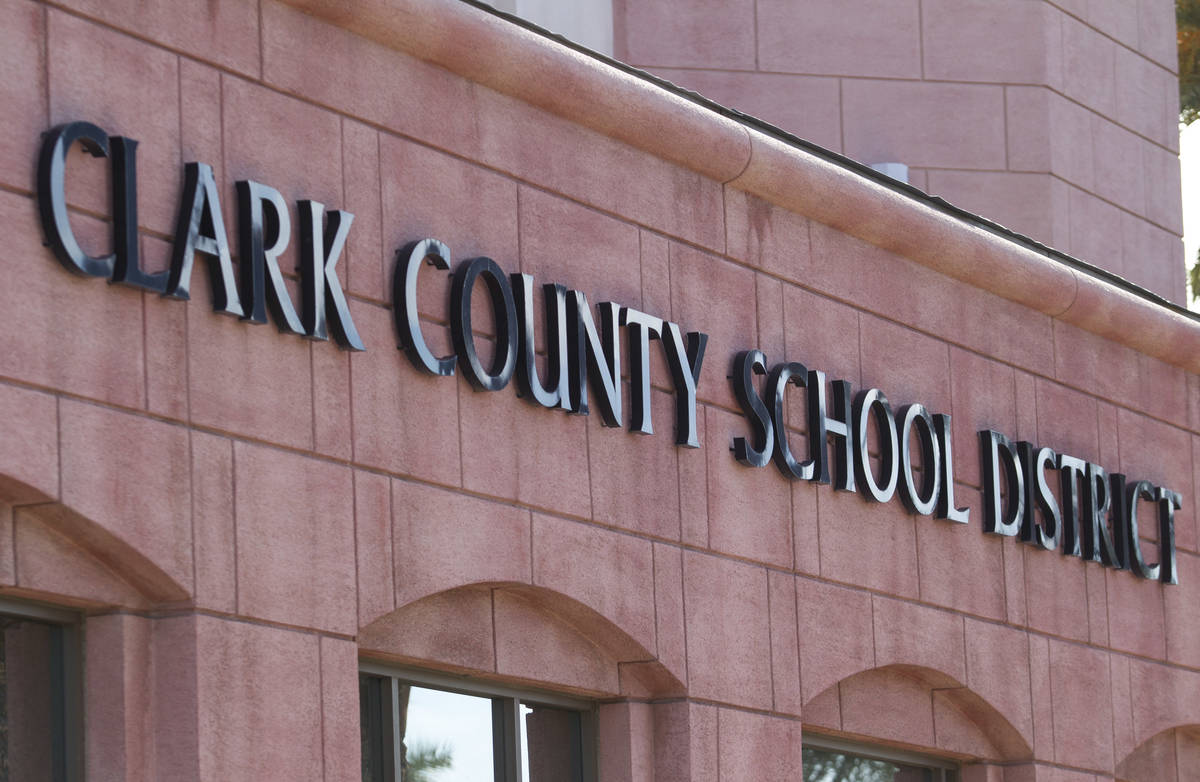CCSD limits recording of online classes, angering parents, teachers
Clark County School District teachers will need to take extra steps before recording their live lectures during distance learning, according to new guidance issued Thursday aimed at ensuring federal student privacy laws are observed.
The new policy caused a flurry online as teachers posted and shared the news. Several told the Review-Journal that they had been instructed by their administrators not to record lectures at all until parents authorize the release of student information via Infinite Campus.
A working document shared with the Review-Journal states that all educators must attempt to obtain a parental authorization for every student prior to recording in order to protect information covered by the Federal Education Rights and Privacy Act, or FERPA, including student names, faces, grade level or health information.
For those students for whom clearance can’t be obtained, teachers must take extra precautions by recording videos without students pictured, it said. Suggestions for how to do this include using a second device or recording only the teacher via Google Meet.
“Educators must explain to students that the sessions will be recorded for students who missed the sessions. Students cannot share or post the recordings and may not independently record the sessions,” the document said. “Educators must take precautions to protect the privacy of student information, whether or not authorization is obtained from the parent/guardian.”
The recordings should also be password-protected and shared only with students enrolled in the class, it said.
Recordings of live lectures have been a cornerstone of the district’s plan for distance learning in order to accommodate students who are unable to view livestreams for a variety of reasons, including network outages, or whose parents can’t help them with school until after work.
An elementary school teacher who asked for anonymity for fear of reprisal said he understands that the new guidance is an attempt to follow federal law and protect the district from litigation, but added that he’s frustrated with the last-minute changes after many teachers crafted their lesson plans around the ability to record lectures.
Teachers had been instructed to record their live lectures for students who missed them, he said. There is also an option in Canvas to require that students watch the video before they can advance to the next lesson.
In previous training, he said, teachers had been instructed to inform students they would be recording ahead of time and to prohibit them from taking screenshots or sharing video.
While brick-and-mortar classrooms must also take precautions to keep information about students private, Arizona attorney and school board member Scott Holcomb said distance learning magnifies concerns about who has access to that information.
“If the kids are onscreen, an adult may wander by and see them,” he said. “That’s an issue.”
Holcomb said that schools hoping to obtain waivers from parents would need to get one for every kid in a class prior to recording. The safest option would be for teachers to record lessons without students onscreen at all, Holcomb said, though such an approach might hamper the interactivity of the class.
Recording lessons is in many ways, a gray area of FERPA, said Amelia Vance, director of youth and education privacy at Future of Privacy Forum. She said there aren’t easy answers.
Vance said the bigger issue is who can watch recorded lessons, where the video is shared or posted — just on Canvas where only students in the class can see it or more widely distributed — and verifying who has access to it.
“The actual recording itself is probably fine,” Vance said.
One best practice is having the teacher be the focus of the video as much as possible, Vance said, and to have students turn off their camera during live group sessions unless it’s absolutely necessary to keep it on.
Contact Aleksandra Appleton at 702-383-0218 or aappleton@reviewjournal.com. Follow @aleksappleton on Twitter.











































